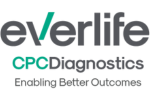Lipid profile or Lipid panel is a group of tests that measure the amount of cholesterol and triglycerides in the blood.
Cholesterol: Cholesterol refers to a type of fat that is synthesized by our liver and also derived from our diet. Cholesterol helps in the proper formation of cell membranes. Cholesterol helps in the synthesis of bile, which in turn helps you digest the fat present in the food. Cholesterol is also needed to make certain hormones and to produce vitamin D. Cholesterol that circulates in the body is carried by the lipoproteins in the blood. These lipoproteins include:
Low-density lipoprotein (LDL): LDL is often called “the bad cholesterol.” When your body has too much LDL cholesterol, the LDL cholesterol can build up on the walls of your blood vessels, blocking the arteries and causing a heart attack.
High-density lipoprotein (HDL): HDL is often called “the good cholesterol” as it absorbs cholesterol from the blood and carries it back to the liver. The liver then flushes it from the body.
Very-low-density lipoproteins (VLDL): Particles in the blood that carry triglycerides.
Triglycerides: Triglycerides are fats that are derived from the food we eat, and act as a source of immediate energy. Most of the fats, including butter and oils, are in triglyceride form. Excess calories from food are converted into triglycerides and are stored in the fat cells of the body.
High cholesterol usually causes no signs or symptoms. High levels are linked to an increased risk of heart and blood vessel disease, including coronary artery disease, heart attack and death. Reducing LDL levels is a major treatment target for cholesterol-lowering medications.
A complete cholesterol test is recommended to be done regularly to determine whether your cholesterol is high. Check out the chart on the recommended cholesterol levels and tips on maintaining your cholesterol levels.
